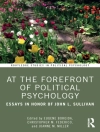A growing body of evidence supports the benefits of high-quality parent interventions for building social and communication skills in 0- to 5-year-olds with autism spectrum disorder (ASD) . How can clinicians coach parents to effectively incorporate learning opportunities into daily routines at home? From preeminent experts, this practical book explores the role of the coach and reviews the ’whats, ’ ’whys, ’ and ’how-tos’ of successful collaboration with parents. Topics include structuring coaching sessions, identifying children’s needs, facilitating playful engagement, and deepening parents’ understanding of how they can boost skills development during everyday activities. Seventeen reproducible handouts and forms include the multipage P-ESDM Infant–Toddler Curriculum Checklist, ideal for use in telehealth assessments. Purchasers get access to a webpage where they can download and print the reproducible materials in a convenient 8 1/2′ x 11′ size.
Innehållsförteckning
1. Helping Parents Help Their Young Children with Autism: An Introduction
2. Key Practices in Coaching Parents in Parent-Implemented Interventions
3. Becoming a Coach: Knowledge, Characteristics, and Supports
4. The Coach’s Tools
5. Assessment, Goal Setting, and Treatment Planning
6. Parent Coaching Sessions
7. Guides for Introducing Intervention Topics and Strategies to Caregivers
8. Variations in Coaching Practices
9. Looking to the Future: Challenges and Opportunities
Appendix A. Handouts and Checklists Used Routinely in Parent Coaching Sessions
Appendix B. P-ESDM Infant–Toddler Curriculum Checklist
Appendix C. Parent-Friendly Data-Tracking Tools
References
Index
Om författaren
Sally J. Rogers, Ph D, is Distinguished Professor Emeritus of Psychiatry and Behavioral Sciences at the MIND Institute at the University of California, Davis. She has served as president of the International Society for Autism Research and is a Fellow of the American Psychological Association, the Association for Psychological Science, and the International Society for Autism Research. With Geraldine Dawson, Dr. Rogers developed the Early Start Denver Model, the first empirically validated comprehensive intervention for toddlers with autism, now used by parents and professionals around the world. She is coauthor of books including An Early Start for Your Child with Autism (for parents) and Early Start Denver Model for Young Children with Autism and Coaching Parents of Young Children with Autism (for professionals). Dr. Rogers has published over 200 papers, chapters, and books, and ranks in the top 1% of Clarivate Analytics Highly Cited Researchers.
Laurie A. Vismara, Ph D, BCBA-D, LBA, has spent her research career working closely with families with autism and contributing to the science and program development of the Early Start Denver Model (ESDM). She is coauthor of An Early Start for Your Child with Autism (for parents) and Coaching Parents of Young Children with Autism (for professionals). Dr. Vismara uses telehealth platforms and travels throughout the United States and internationally to help families, publicly funded programs, and universities develop ESDM in their communities.
Geraldine Dawson, Ph D, is the William Cleland Distinguished Professor of Psychiatry and Behavioral Sciences at Duke University. She directs the Duke Institute for Brain Sciences and the Duke Center for Autism and Brain Development. With Sally J. Rogers, Dr. Dawson developed the Early Start Denver Model, the first empirically validated comprehensive intervention for toddlers with autism. Dr. Dawson is coauthor of the parent resources What Science Tells Us about Autism Spectrum Disorder, An Early Start for Your Child with Autism, and A Parent’s Guide to High-Functioning Autism Spectrum Disorder, Second Edition. Her books for professionals include Early Start Denver Model for Young Children with Autism and Coaching Parents of Young Children with Autism. She is an elected member of the American Academy of Arts and Sciences; received the Distinguished Career Award from the Society of Clinical Child and Adolescent Psychology (Division 53 of the American Psychological Association) and the Lifetime Achievement Award from the Association for Psychological Science; and ranks in the top 1% of Clarivate Analytics Highly Cited Researchers.












